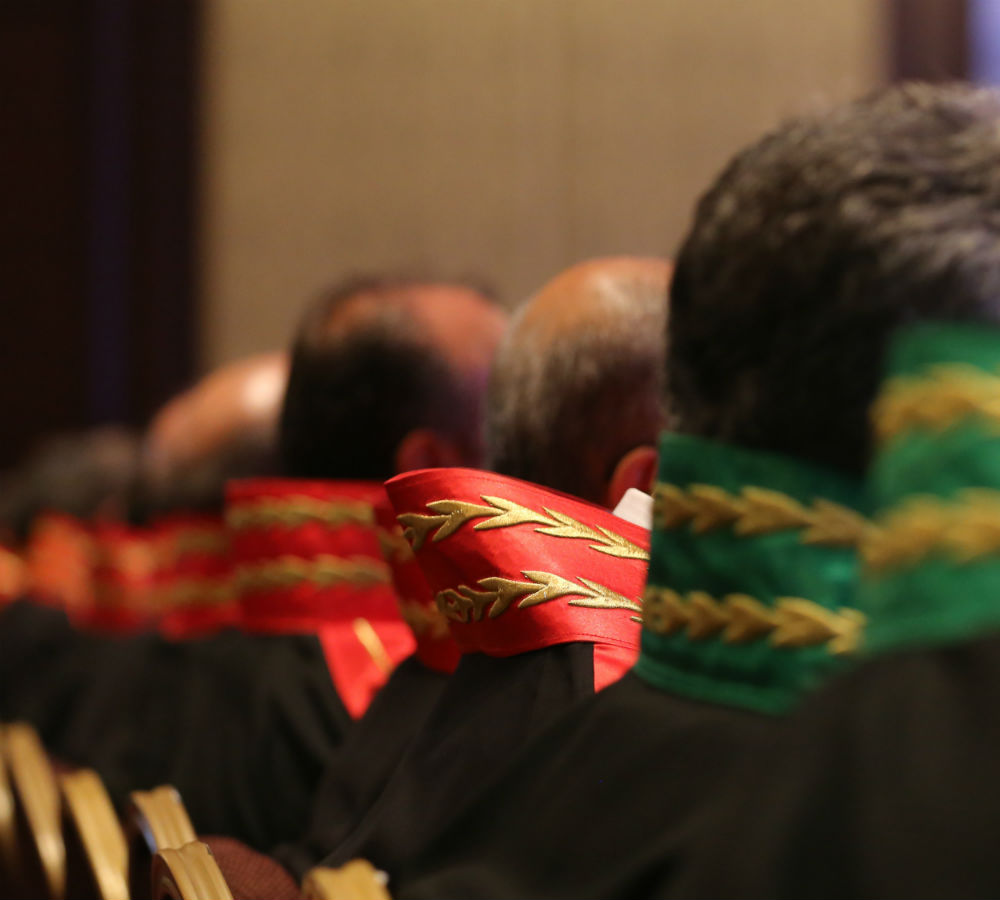Out of the 134 judges and prosecutors, 47 were put under arrest upon a court order by the İstanbul Chief Public Prosecutor’s Office on Wednesday based on the allegations that they were involved in last Friday’s averted military coup attempt.
The suspects, including 32 others released pending trial, are charged with “being member of a terrorist organization.” A total of 42 judges and prosecutors are currently being sought as part of the same investigation.
The arrestees are accused of being a part of a “parallel state,” a term coined by President Recep Tayyip Erdoğan to incriminate the sympathizers of the Gülen movement, a grassroots social initiative inspired by US-based Turkish Islamic scholar Fethullah Gülen. The movement carries out charitable activities all around the world, including education, distributing humanitarian aid and providing drinking water especially in African countries.
Erdoğan and the government have accussed the Gülen movement of being behind last Friday’s military coup attempt that caused the death of around 200 people overnight before being suppressed. Erdoğan demanded extradition of Gülen from the US.
Meanwhile, Gülen recently issued a statement condemning the failed military coup attempt in Turkey, calling the allegations of his involvement “demeaning.”
The Gülen movement is not considered to have any influence over the Turkish military, which is known for its Kemalist roots that is against the Gülen movement. The rebel military officials who attempted to stage a coup named themselves as “Council of Peace At Home,” in a declaration they forcibly had delivered by the state-run broadcaster TRT on Friday night. The name is a reference to “Peace at home, peace in the world,” which is a famous saying by Mustafa Kemal Atatürk, the founder of the Republic of Turkey.
Since a massive corruption scandal that implicated then-ministers of the Cabinet erupted on Dec. 17, 2013, Erdoğan and the AK Party government claimed that the graft investigation was a “coup attempt” against his government and accused the Gülen movement of being behind it. The sons of ministers, well-known business people, a district mayor, a director of a state-owned bank, and many high-profile figures, who were arrested as part of the investigation, were released and the prosecutors who initiated the case were later imprisoned as a result of political interference. However, four Cabinet ministers were forced to resign.
The major graft case was closed by other prosecutors who replaced them, with all the charges against politicians and business people being dropped. A parliamentary investigation against the four ministers was also dropped with AK Party votes. The graft probe had implicated then-Prime Minister Erdoğan, members of his family and senior Justice and Development Party (AK Party) figures.
Erdoğan refers to the movement as “Fethullahist Terrorist Organization,” which is used by the government-backed judiciary to frame sympathizers of the Gülen movement.
Following the Dec. 17 corruption and bribery scandal, Erdoğan and the government launched a witch hunt against the Gülen movement and its sympathizers. Erdoğan personally declared he would carry out a “witch hunt” against anyone with links to the movement.
Thousands of prosecutors, judges and police chiefs were reassigned, dismissed or imprisoned either for taking part in the corruption investigation or based on allegations of having links to the movement. Also there have been many police operations carried out targeting shopkeepers, teachers, members of the judiciary, journalists and police officers who are accused of being affiliated with the Gülen movement, also known as the Hizmet movement.
The Gülen movement strongly rejects the allegations brought against it.
